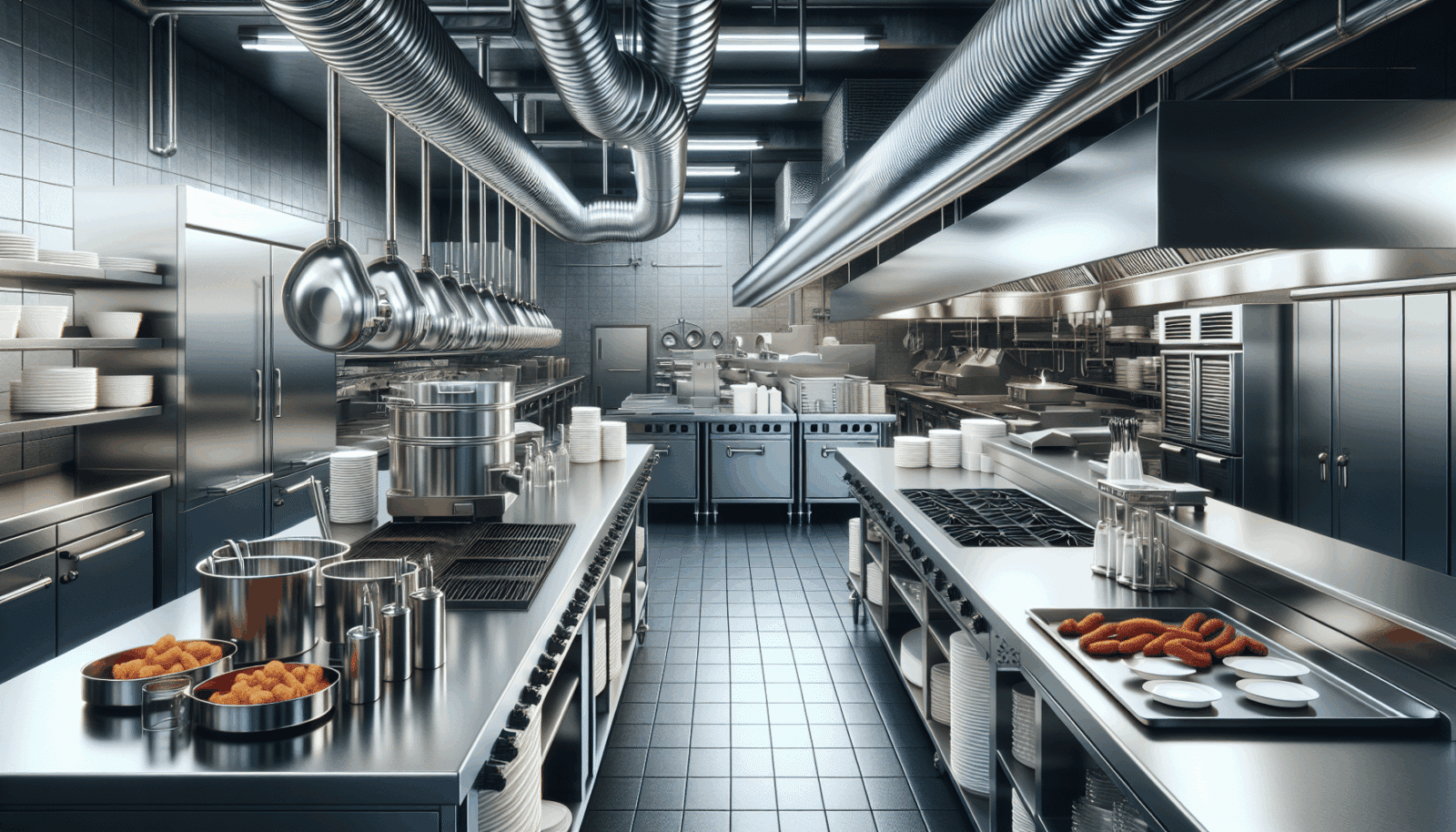Keeping your Kitchen Exhaust system in tip-top shape is crucial for safety, efficiency, and compliance with local regulations. At Utah Hood Cleaning, we understand the importance of a clean and well-maintained Exhaust system in your home kitchen. This ultimate guide offers valuable insights and practical tips to help homeowners like you maintain their systems effectively. Let’s dive right into making your kitchen a safer and more pleasant place to cook.
Understanding Your Kitchen Exhaust System
The heart of a kitchen’s ventilation system is the exhaust system. It’s designed to remove smoke, heat, and odors, ensuring a fresh environment for cooking. The system is typically composed of a hood, filters, ductwork, and an exhaust fan. Regular maintenance is essential not only to keep it running smoothly but also to prevent fire hazards and ensure air quality is maintained at safe and comfortable levels.
Many homeowners overlook the importance of understanding their kitchen exhaust systems. A well-informed owner can identify problems early, understand when professional help is needed, and contribute to the system’s longevity through simple daily practices.
The Importance of Regular Cleaning
Regular cleaning of your kitchen exhaust system can’t be overstated. Over time, Grease and other substances accumulate, presenting significant fire risks. Furthermore, a clogged system won’t function efficiently, leading to poor air quality and higher energy bills.
At Utah Hood Cleaning, we recommend a comprehensive cleaning process that includes the hood, filters, ductwork, and fan. This not only ensures a safer cooking environment but also prolongs the life of your system. Not all heroes wear capes—some wield cleaning tools to protect your home.
Signs Your System Needs Attention
- Poor Ventilation: If smoke lingers longer than usual or your kitchen feels stuffier, your system might be due for a check-up.
- Grease Accumulation: Visible grease on surfaces outside the hood is a clear sign your Filter might be overwhelmed.
- Strange Noises: Unusual sounds from the fan could indicate mechanical issues that need professional attention.
- Foul Odors: Persistent unpleasant smells could mean the grease is not being properly vented outside.
- Inefficiency: If it feels like your system is working harder but performing worse, it might be time for maintenance.
DIY Cleaning Tips
Yes, some aspects of kitchen exhaust system maintenance can be a DIY project. For example, cleaning the filters is a simple task that should be done monthly. Use warm, soapy water to remove grease and dirt or place them in your dishwasher if they are dishwasher-safe. Remember, though, for a thorough deep cleaning of the entire system, it’s best to leave it to the professionals.
Another DIY tip is to regularly check the exterior vent for debris or nesting animals. A clear vent keeps your system running smoothly and efficiently. Just be sure to turn the system off before poking around.
When to Call the Professionals
While some maintenance can be done on your own, there are times when it’s safer and more effective to call in the professionals. An in-depth cleaning of your ductwork and exhaust fan, for example, requires specialized tools and knowledge for safe and thorough cleaning.
At Utah Hood Cleaning, our team is equipped with the tools and expertise to ensure your kitchen exhaust system is cleaned to the highest standards, complying with local safety and health regulations. We understand the intricacies of different systems, making us your go-to experts.
Preventing Grease Buildup
Preventing grease buildup is key to maintaining a healthy, safe, and efficient kitchen exhaust system. Cooking methods matter—opting for lower grease cooking methods when possible can significantly reduce the rate of buildup.
Additionally, using high-quality filters and replacing them regularly can capture more grease before it enters your ductwork. Simple changes in cooking habits can lead to lower risks of fire and better system performance.
The Role of Inspections
Regular inspections by professionals play a pivotal role in keeping your kitchen exhaust system in excellent condition. An inspection can uncover hidden issues that, if left unaddressed, could lead to system failure or even a dangerous fire.
During an inspection, professionals will assess all components of your system, from the hood to the exhaust fan, ensuring everything is up to code. They’ll also provide recommendations for improving your system’s efficiency and lifespan. Trust us, having your system inspected by Utah Hood Cleaning is a move towards a safer and more efficient kitchen.
Eco-Friendly Cleaning Solutions
At Utah Hood Cleaning, we are committed to not only keeping your kitchen safe but also protecting the environment. We use eco-friendly cleaning solutions that effectively break down grease and grime without the harsh chemicals found in traditional cleaners.
These solutions are safer for your home, your family, and the environment, aligning with our vision of a cleaner, greener future. Choosing eco-friendly solutions is a win-win for your kitchen’s cleanliness and our planet’s health.
Maintaining Air Quality
A clean kitchen exhaust system is crucial for maintaining good indoor air quality. By efficiently removing smoke, odors, and potentially harmful pollutants, it helps create a healthier environment for you and your family.
Simple practices, such as regular cleaning and inspections, significantly impact air quality. Remember, a well-maintained system is your first line of defense against air contamination in your kitchen.
Conclusion
Your kitchen exhaust system plays a crucial role in keeping your kitchen safe, clean, and pleasant for cooking. By following this guide, you are on your way to mastering the art of kitchen exhaust maintenance.
For expert help with your kitchen exhaust needs in Utah, don’t hesitate to reach out to us by phone at 801-853-8155 or Request a Free Quote. We’re here to ensure your system runs safely and efficiently.




